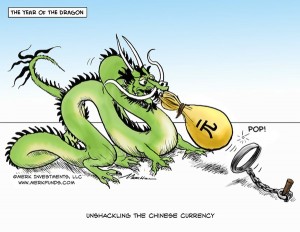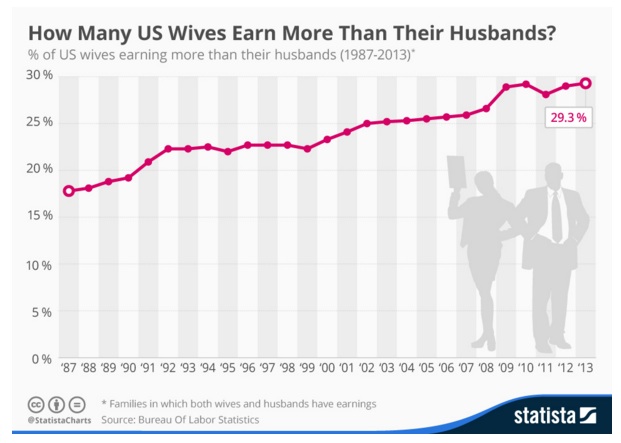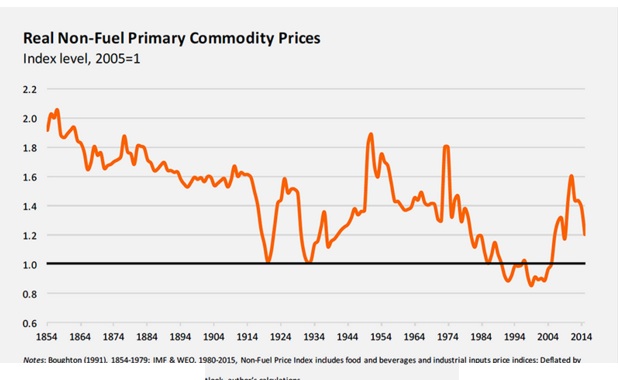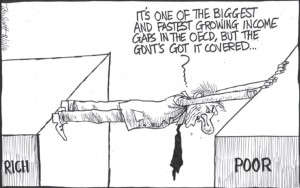Benjamin J. Cohen writes: The Chinese government’s campaign to have its currency, the renminbi, included in the International Monetary Fund’s reserve asset appears to be on the brink of success. Last week, IMF staff formally recommended adding the renminbi to the basket of currencies that determines the value of its so-called Special Drawing Rights (SDRs).
The addition of the renminbi to the basket, which currently includes the US dollar, the euro, the British pound, and the Japanese yen, would provide China with a boost to its prestige. More important, it would advance the government’s efforts to internationalize the renminbi. But it would also be a mistake. The decision to recommend the renminbi’s inclusion, far from having been made on sound economic grounds, can only be understood as political. As such, the long-term consequences are likely to be regrettable.
On a purely technical basis, the renminbi’s qualifications for inclusion in the SDR basket are questionable. Traditionally, the IMF has insisted on two criteria: a currency’s issuing country must be among the world’s leading exporters, and the currency must be “freely usable” – widely used and traded.
As the world’s largest exporter, China clearly meets the first condition. The second, however, is probably still beyond its reach. The renminbi is by no means in the same league as the SDR basket’s four incumbent currencies. In 2014, China’s currency ranked seventh in global central-bank reserves, eighth in international bond issuance, and 11th in global currency trading. Moreover, the renminbi remains non-convertible for most capital transactions, China’s financial markets are primitive, and trading margins for the exchange rate are still set daily by the monetary authorities.
Indeed, as recently as August, the IMF was skeptical about adding the renminbi to the SDR basket, saying that “significant work” was still needed, and suggesting that a decision should be put off until 2016 in order to ensure a “smooth” transition.
So why did the IMF flip? The answer is obvious: China mounted a full-court press to change minds. In August, the currency’s exchange-rate regime was loosened slightly. Renminbi-denominated government bonds were issued in London, and plans were laid to create new trading platforms for the currency in several European financial centers. And Chinese policymakers made it abundantly clear how unhappy they would be with a negative decision..
Many would argue that this is a positive development. Certainly, it mollifies China’s leaders, offering them a stronger incentive to continue to work within the existing international monetary regime. Recent Chinese initiatives, especially the creation of the Asian Infrastructure Investment Bank, have given rise to fears that the country intends to build a new set of international institutions to compete with Western-dominated organizations like the IMF.
On the other hand, the move sets a worrying precedent, injecting politics into a policy area that had been governed by objective economic considerations.
Of course, it can be argued that China’s recent economic trajectory means that it is only a matter of time before the renminbi does become a match for the SDR’s incumbents.
Use of the renminbi for the purpose of invoicing and settling trade with China is bound to continue growing.
Nor is inclusion of the renminbi in the SDR basket likely to provide as big a boost to the currency’s internationalization as many believe. Some central banks may decide to follow suit, adding renminbi-denominated assets to their reserves to match the composition of the basket. But the increase will be marginal at best – some $40 billion in the next few years, according to the IMF’s calculations. With global reserves now totaling more than $10 trillion, that is a mere drop in the proverbial bucket.
The political reasons for including the renminbi in the SDR are all too clear. Unfortunately, the risks of doing so are no less obvious.





